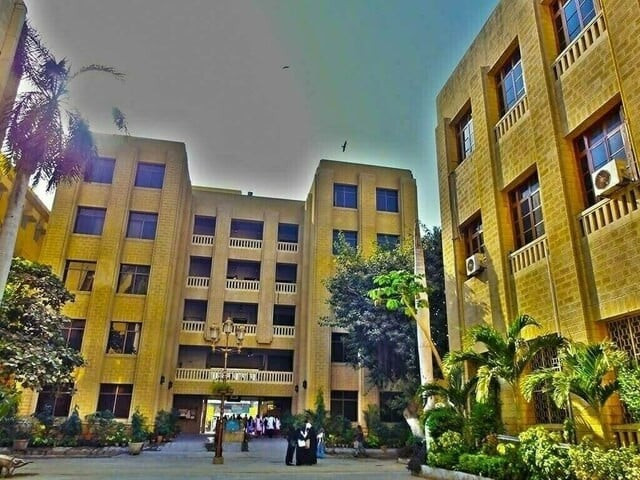High merit bars majority from govt college admissions
Teachers' organisations call for policy changes to make education more accessible

While the first-year admissions have kicked off in all government colleges after the announcement of matriculation results, a significant 55% of students, who passed the exam with first, second and third divisions, have been excluded from the admission process in major government colleges in the name of merit.
The Federal Government (FG) has implemented a new policy, limiting admissions to cantonment colleges only for students residing within the cantonment area and excluding students from urban areas.
Kohsar University in Murree has also abandoned its first-year classes and ceased admissions for the current academic year. However, the university's decision to abruptly transfer all teachers of the first and second year has put the future of enrolled second-year students in jeopardy. The move will force students from the new district of Murree to travel to Rawalpindi or Islamabad for their first-year education, which may lead to a significant number of students dropping out.
In contrast, private colleges have opened their doors to all passed students, regardless of their division, on a first-come, first-served basis. Nevertheless, these colleges have substantially increased their admission fees and monthly tuition fees for first-year classes.
The high entrance merit in government colleges has resulted in a significant number of poor students being unable to pursue their education, forcing them to drop out. Furthermore, the new admissions have brought about a substantial increase in the prices of uniforms and textbooks across all colleges. The cost of a college uniform has risen to Rs 5,000, while a complete set of textbooks for the first year now ranges from Rs8,500 to Rs15,000. As a consequence, college education is becoming increasingly inaccessible to students from poor and middle-class backgrounds, shutting the doors of higher education in their faces.
Private colleges are charging exorbitant fees, with admission fees ranging from Rs17,000 to Rs32,000 and monthly fees between Rs10,000 to Rs15,000. In contrast, these colleges are offering immediate admission to students based solely on their pass certificates. On the other hand, government colleges have begun their new admission process from July 18, with the entire process expected to be completed by August 5. Once the admissions are finalised, new classes are scheduled to commence from August 15.
Admission committees have been established in all government colleges. Meanwhile, teachers' organisations have urged the authorities to reconsider the policy of high admission merit, advocating for a more inclusive approach.
They propose that all prominent old girls and boys high schools across Punjab be granted higher secondary status, which would help alleviate the burden on big colleges.
Professor Ilyas Qureshi, an office-bearer of the Professors and Lecturers Association, has urged for the construction of two new boys colleges in Rawalpindi city and Cantt to address admission challenges. According to him, no new boys college has been built in over four decades within Rawalpindi and a mere four major government colleges are unable to cater to the 5.7 million population.
Muhammad Shafiq Bhalwalia, the central secretary of the SES Teachers Association, proposed a solution to balance the admission system by granting higher secondary status to all boys high schools. This, he believed, would encourage Matric pass students to opt for intermediate studies at their own schools.












1724319076-0/Untitled-design-(5)1724319076-0-208x130.webp)






COMMENTS
Comments are moderated and generally will be posted if they are on-topic and not abusive.
For more information, please see our Comments FAQ